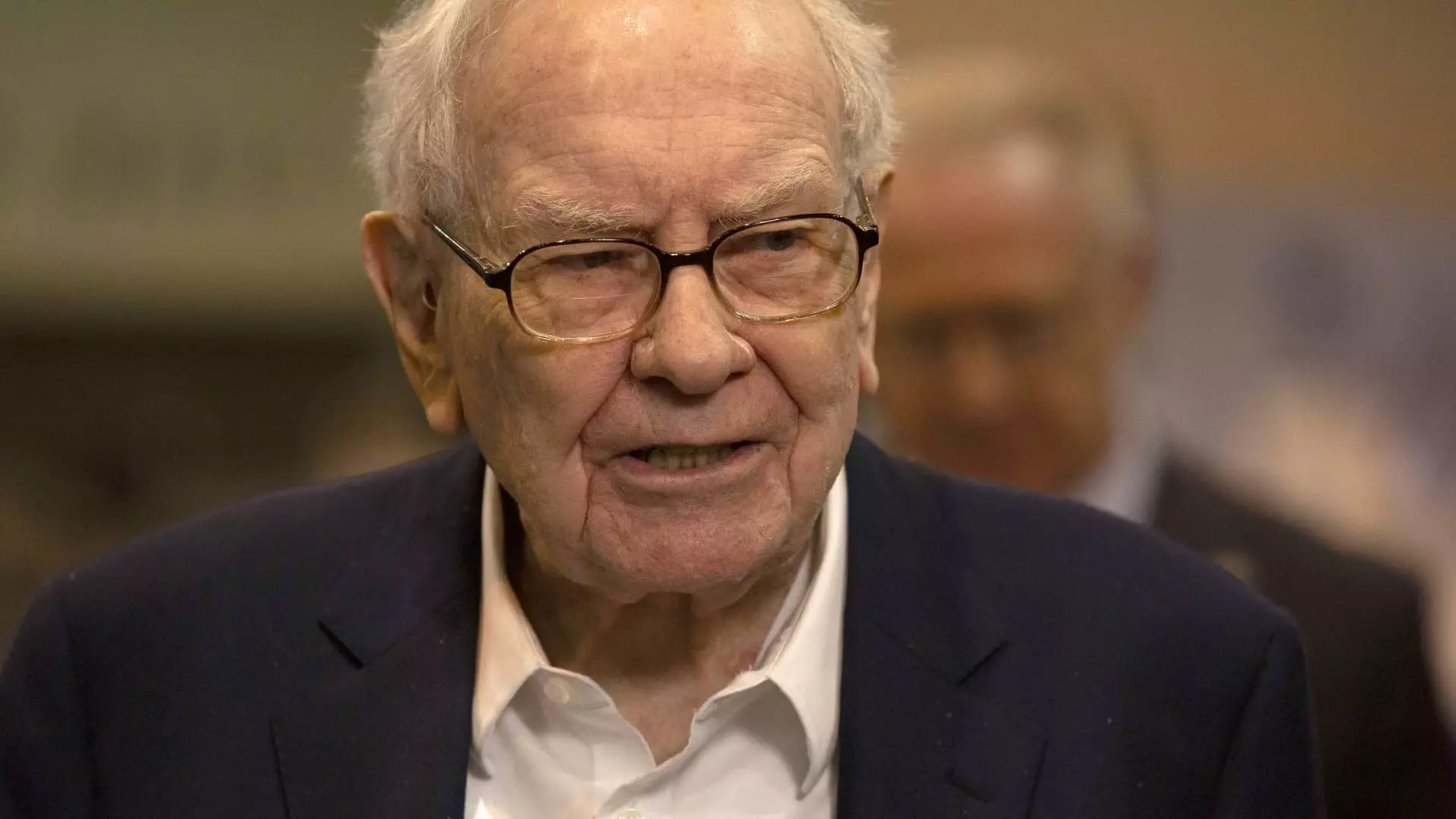Berkshire Hathaway has consistently demonstrated a unique ability to navigate the complexities of investment strategies, and as the third quarter of this year ends, the company is no exception. With its cash reserve soaring to a staggering $325.2 billion, up from $276.9 billion in the previous quarter, Warren Buffett’s investment philosophy seems to hinge on a blend of caution and foresight. This remarkable escalation in cash holdings reflects not only an accumulation strategy but also an underlying narrative of Buffett’s approach to navigating a market that remains volatile despite bullish trends.
Buffett’s recent stock sales, particularly significant stakes in major companies like Apple and Bank of America, have raised eyebrows among investors and analysts alike. The divestment of approximately 25% of Berkshire’s Apple holdings marks a notable trend: this is not just a one-off decision but rather a continuation of a broader pattern. For the past four quarters, Buffett has systematically reduced his stake in Apple, signaling a shift in his investment strategy during a time when technological stocks have remained strong performers. Meanwhile, his decision to offload more than $10 billion worth of Bank of America shares since mid-July suggests a calculated move in response to market conditions.
In stark contrast to the rampant selling, Berkshire’s approach to share repurchases has notably cooled. During the third quarter, the conglomerate abstained from repurchasing any of its own shares, which diverges significantly from its activities in previous years. The slowdown in buybacks—culminating in a mere $345 million repurchased in the second quarter compared to $2 billion in each of the preceding two quarters—raises questions about Buffett’s outlook on the intrinsic value of Berkshire’s shares. Historically, Buffett has indicated readiness to repurchase shares when he believes their market price falls below their intrinsic value; the current situation implies a belief that the stock is valued appropriately in the present market.
Interestingly, Berkshire’s shares have outperformed the S&P 500 this year, with a rise of 25% year-to-date compared to the index’s 20.1%. This performance indicates that Buffett’s investment choices, coupled with effective risk management, have yielded significant returns. However, the absence of aggressive buyback activity raises questions about what Buffett sees on the horizon — does he anticipate better opportunities elsewhere, or is he simply biding his time in a complex economic environment?
Berkshire Hathaway’s operating earnings took a dip in the third quarter, totaling $10.1 billion, down about 6% from the previous year. This decline, attributed to weaker insurance underwriting, suggests that the conglomerate faces challenges amid a backdrop of fluctuating market conditions. The numbers fell short of analysts’ projections and extend a cautionary tale about the volatility inherent within specific sectors, reinforcing Buffett’s cautious investment posture.
Despite the bearish signs from operating earnings, the stock market has experienced an upward trajectory, propped up by rising optimism around a ‘soft landing’ for the economy amidst declining inflation and the Federal Reserve’s interest rate strategy. However, the resurgence of the 10-year Treasury yield above 4% last month has introduced fresh concerns about the sustainability of this optimistic outlook. As interest rates fluctuate, so do investment strategies — and Buffett’s reluctance to engage in significant stock repurchases could indicate a wariness of the current economic landscape.
Berkshire’s strategy appears to be influenced by a broader economic context that could include rising tax rates on capital gains intended to address the burgeoning federal fiscal deficit. Investors such as Paul Tudor Jones voice concerns about this deficit and the potential for policy shifts depending on the upcoming elections. Buffett’s actions to reduce stock holdings suggest not just an opportunistic approach but also an adaptive stance to counteract possible future fiscal pressures.
Buffett remains an astute observer of market dynamics, skillfully balancing the accumulation of cash while thoughtfully restructuring holdings in light of potential economic headwinds. Berkshire Hathaway’s situation serves as an intriguing case study in the investment world, providing insights into the nuances of managing large-scale equity while preparing strategically for uncertainties ahead. The conglomerate’s positioning ultimately raises critical considerations about the broader implications of financial strategy in today’s evolving investment climate.


Leave a Reply